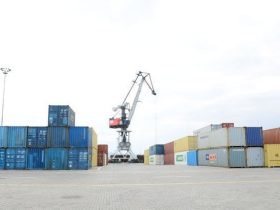
Georgia’s main businesses
Georgia has a diverse and vibrant economy, with its main businesses centered around agriculture, tourism, logistics, energy, and manufacturing. Over the past decades, the country has made significant strides in transitioning from a largely agrarian economy to one that encompasses various modern sectors. Here’s an overview of some of Georgia’s main businesses:
1. Agriculture
Agriculture remains one of the backbone sectors in Georgia’s economy, and the country is known for its production of grapes, wine, hazelnuts, and fruits. Georgia’s wine industry is particularly noteworthy, with a history dating back 8,000 years. Georgian wine exports are popular worldwide, with Russia, China, and European Union countries being key markets. Hazelnuts are another major export product, with Italy and Germany being primary buyers. The government has promoted agricultural development through initiatives that aim to modernize farming practices and increase yields.
2. Tourism
Tourism has emerged as a major economic driver for Georgia. The country’s unique combination of scenic landscapes, historical sites, and vibrant culture attracts millions of visitors each year. Cities like Tbilisi, Batumi, and Kutaisi have become key tourist destinations, each offering distinct attractions. Tbilisi, Georgia’s capital, is known for its old town, vibrant arts scene, and unique architecture. Batumi, a city on the Black Sea coast, has developed into a popular seaside destination with casinos, modern high-rise buildings, and a subtropical climate. The Georgian mountains, including the Greater Caucasus region, attract adventure tourists interested in hiking, skiing, and mountaineering. The tourism industry provides significant employment opportunities, especially in hospitality and retail, and has spurred infrastructure developments like new hotels, transportation facilities, and tourist services.
3. Logistics and Transportation
Georgia’s strategic location as a bridge between Europe and Asia makes logistics and transportation a growing industry. The country’s geographical position is vital for regional trade, particularly for landlocked countries like Armenia and Azerbaijan. Georgia’s ports on the Black Sea—such as the Port of Poti and the Port of Batumi—serve as important transit hubs. Additionally, the development of the Anaklia Deep Sea Port aims to make Georgia a regional logistics center, facilitating trade between Asia and Europe. The Baku-Tbilisi-Kars (BTK) railway also strengthens Georgia’s role in the regional logistics network, allowing cargo to move efficiently across Central Asia, the Caucasus, and Europe.
4. Energy
Georgia’s energy sector, especially hydropower, plays a significant role in its economy. The country’s abundance of rivers provides great potential for hydroelectric power generation, and hydroelectric plants supply most of Georgia’s energy needs. Georgia has become a net electricity exporter, supplying energy to neighboring countries, particularly Turkey. Additionally, Georgia’s energy sector includes natural gas imports, primarily from Azerbaijan, and the country serves as a transit point for pipelines transporting Caspian oil and gas to Europe. The government has invested in diversifying energy sources to increase efficiency, reduce dependency on imports, and attract foreign investment.
5. Manufacturing and Industry
The manufacturing sector in Georgia has shown steady growth, supported by foreign direct investment (FDI) and favorable government policies. Georgia produces chemicals, building materials, textiles, and processed foods. The country’s mining industry is also significant, with copper and manganese being primary mineral exports. In recent years, Georgia has seen the development of free industrial zones (FIZs), such as the one in Kutaisi, which incentivize manufacturers by providing tax breaks and streamlined regulations. These zones attract both domestic and international companies looking to establish a production base in the Caucasus region.
6. Financial and Business Services
The Georgian financial sector has developed in response to economic reforms that aimed to create a more business-friendly environment. Georgia ranks high on the World Bank’s Ease of Doing Business index, which reflects its streamlined processes for starting businesses, paying taxes, and handling commercial disputes. Tbilisi has emerged as a regional financial center, with international banks, insurance companies, and investment firms expanding their presence in the city. The sector has grown in response to the government’s open-door policies, making it relatively easy for foreign businesses to invest and operate in Georgia.
7. Information Technology and Innovation
In recent years, Georgia has invested in its technology and innovation sectors to create new growth avenues. Tech startups have begun to emerge, especially in Tbilisi, and the government has introduced policies to support entrepreneurship. Digitalization initiatives have been adopted to increase internet connectivity and modernize public services, attracting foreign tech companies. Georgia is positioning itself as an attractive hub for IT outsourcing, particularly for nearby European countries, due to its lower costs, skilled workforce, and strong IT infrastructure.
Conclusion
Georgia’s economy is characterized by a blend of traditional industries like agriculture and wine production, alongside rapidly growing sectors such as tourism, logistics, and energy. The government’s efforts to foster a business-friendly environment, alongside its strategic location, have made Georgia an attractive destination for foreign investments across various industries. With continued investment in infrastructure, innovation, and international partnerships, Georgia’s economy is likely to keep expanding and diversifying, solidifying its role as an emerging player in the region.



Leave a Reply